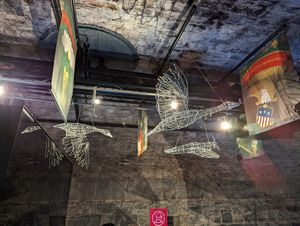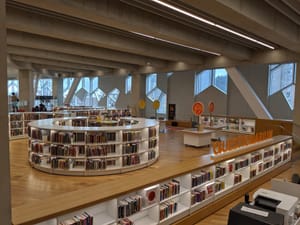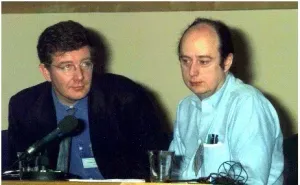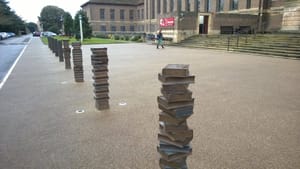The first post on this blog was on 20th October 2003. The blog was originally internal to OCLC, but quite early on we published it more widely.
Over the years, it has migrated platforms a few times, but the content remains intact, and redirects from earlier platforms seem to be holding up. Unfortunately, we did lose earlier comments in one transition. Check out the Colophon for a short note about platforms, fonts and transitions. There are currently 1926 posts spanning 20 years. They cover many topics, but never stray very far from libraries.
The early center of gravity was technical (in a loose sense), talking about library systems, metadata and related matters. The blog was also active during the emergence of 'webscale' platforms in the Web 2.0 era, and charted twin contrary paths of these developments. First, there was the participatory diffusion through multiple social tools, 'mashups' (remember them?) and publishing platforms, and second, the major concentration in the social and ecommerce platforms that benefited from network effects and winner takes all dynamics in coming to dominate much of our online life (Amazoogle ... Amazon, Facebook, Google, etc).
Over the years, there has been more writing about the library as an evolving organization in a network of relationships, responding to changes in research, learning and civic engagement.
I am pleased about how it has sometimes been part of the library conversation over the years. I was also very pleased to work with the industrious and sympathetic Ken Varnum on the book of the blog. Counter-intuitive maybe, but it was nice to see the quotes we included from readers, and reviewers were generally generous.
Citations are not the best way to track influence for a venue like this, but it is interesting to see the three most cited blog entries as recorded by Google Scholar.
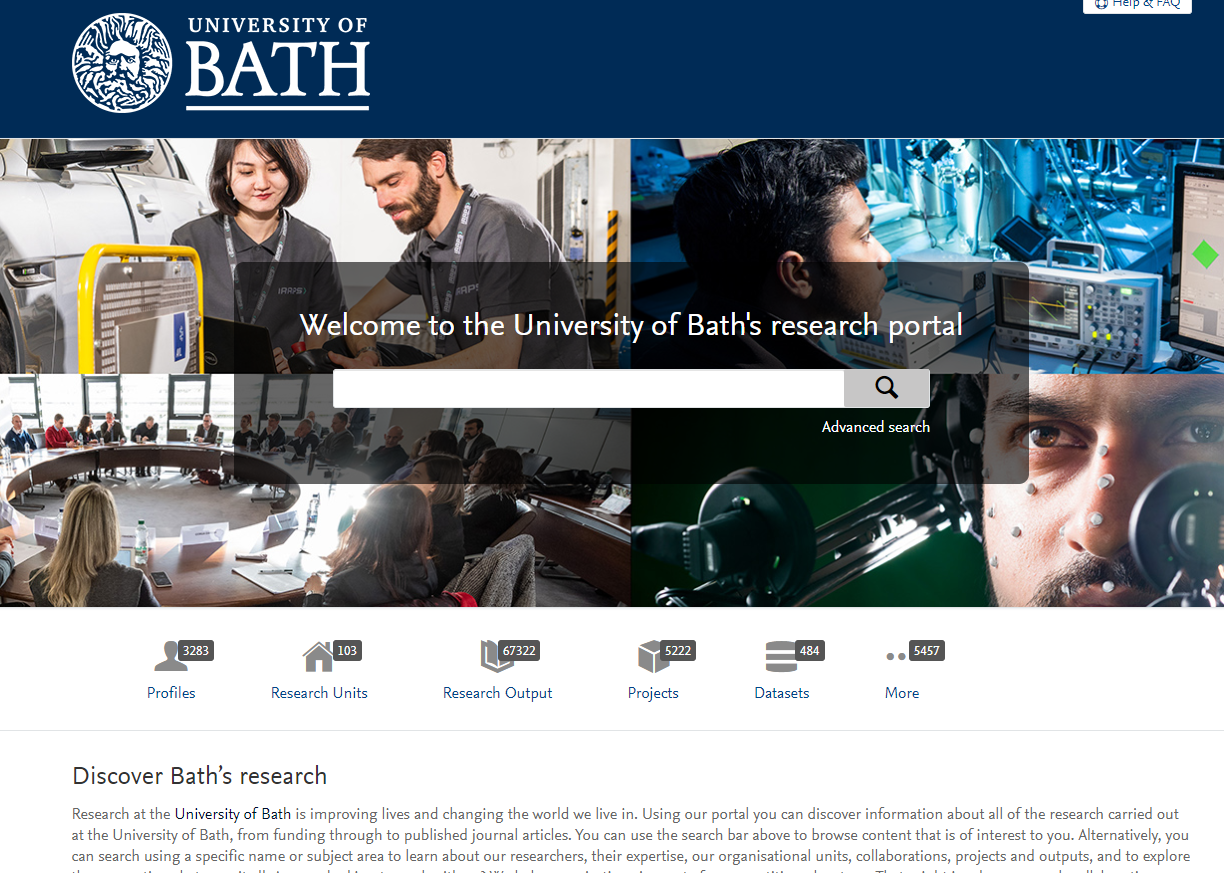
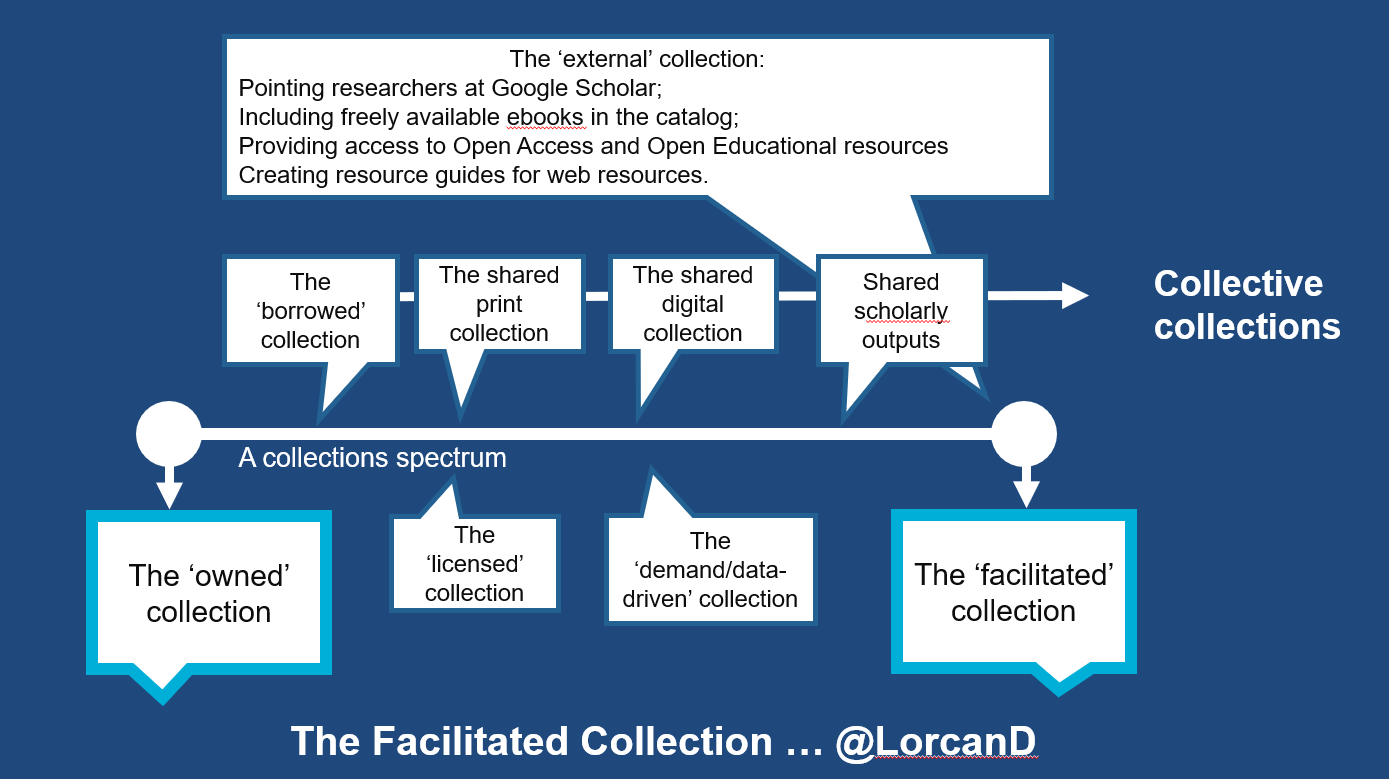
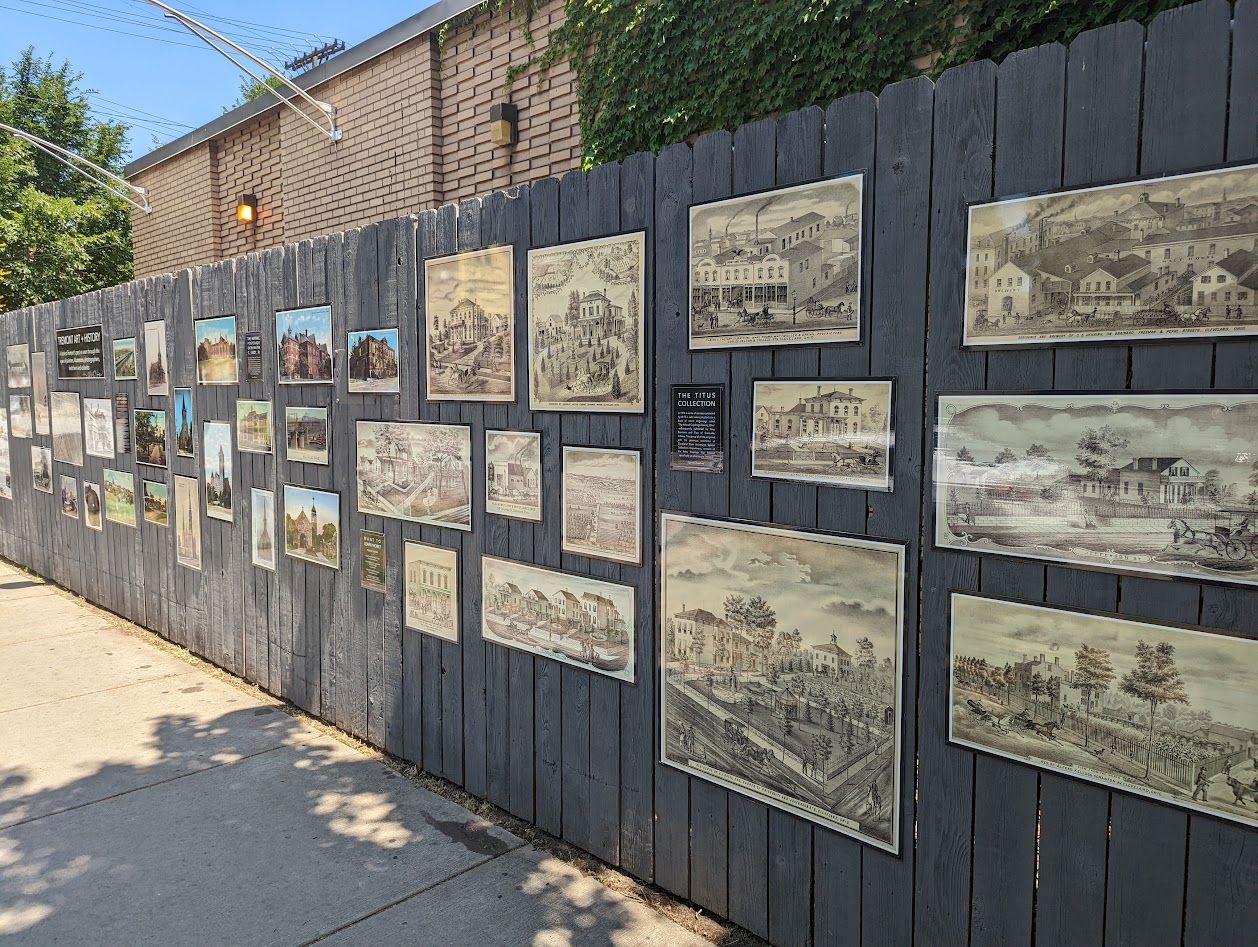
It was a place to introduce topics and ideas (in the flow, discovery happens elsewhere, amplified conference, workflow is the new content, as well as the collections topics mentioned above, and others) and to work through evolving thinking. I was pleased, for example, with the reception to the series I did on the characteristics of consortia, where I was aiming to crystalise thoughts about library collaboration.
Of course, not everything was equally successful. I quite liked techeology, coined to suggest a situation where ideology was driving technology choices or development. Others apparently didn't like it so much. Ditto intrastructure. I also like stitching costs, to refer to costs/time/effort of integration or interoperability ... maybe there is hope for it yet.
The focus is largely professional, but I would certainly also touch on other topics .. about Ireland, literature and other matters. Or I liked connecting these with library issues, as in this entry on Clannad, Enya and authority control or various entries on how library data could say interesting things about literary reputation or publication patterns. Here is one about memory institutions in the context of Ireland, and one also on fonts, in which I developed an interest in recent years (although related back to libraries).
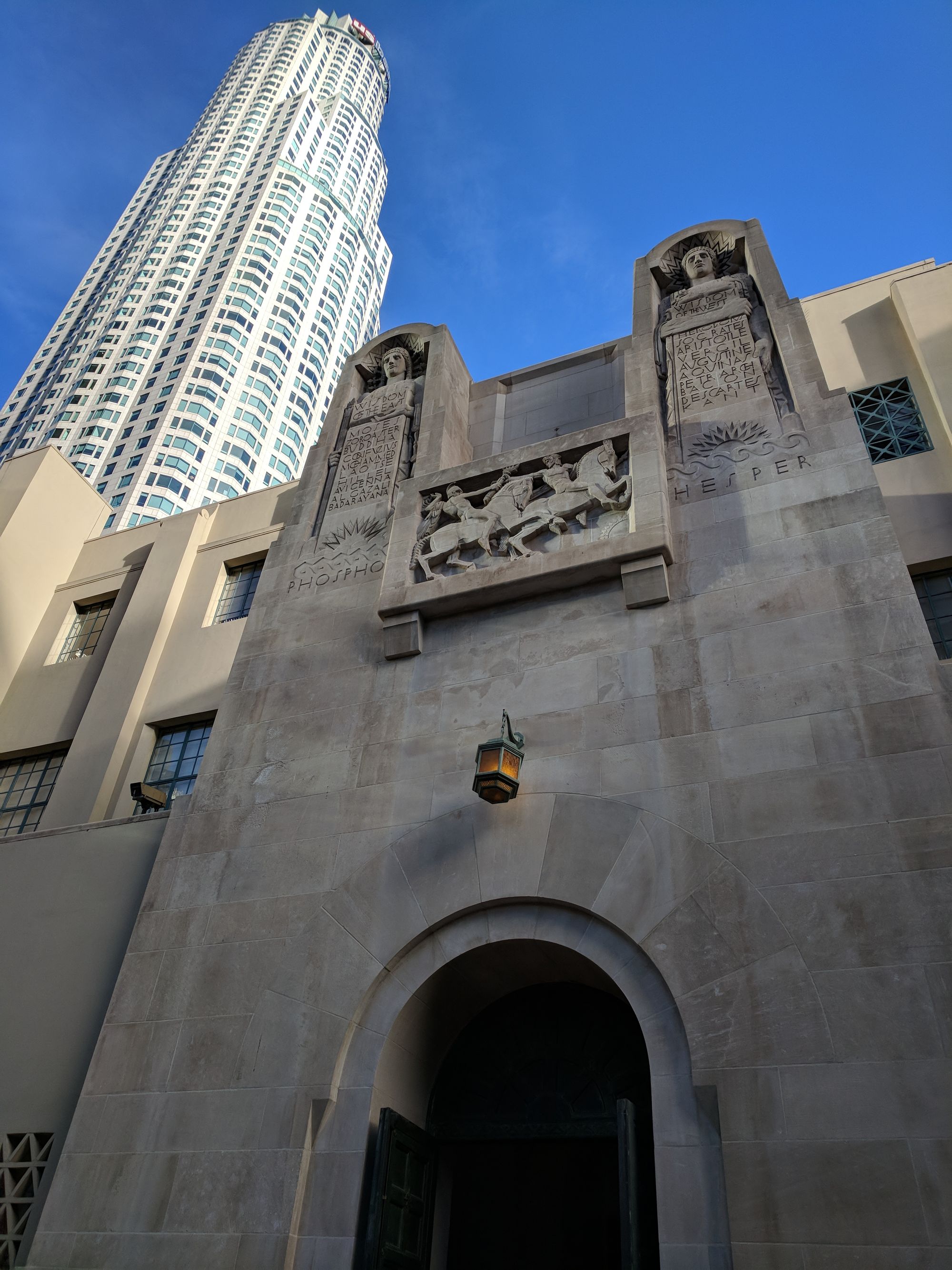
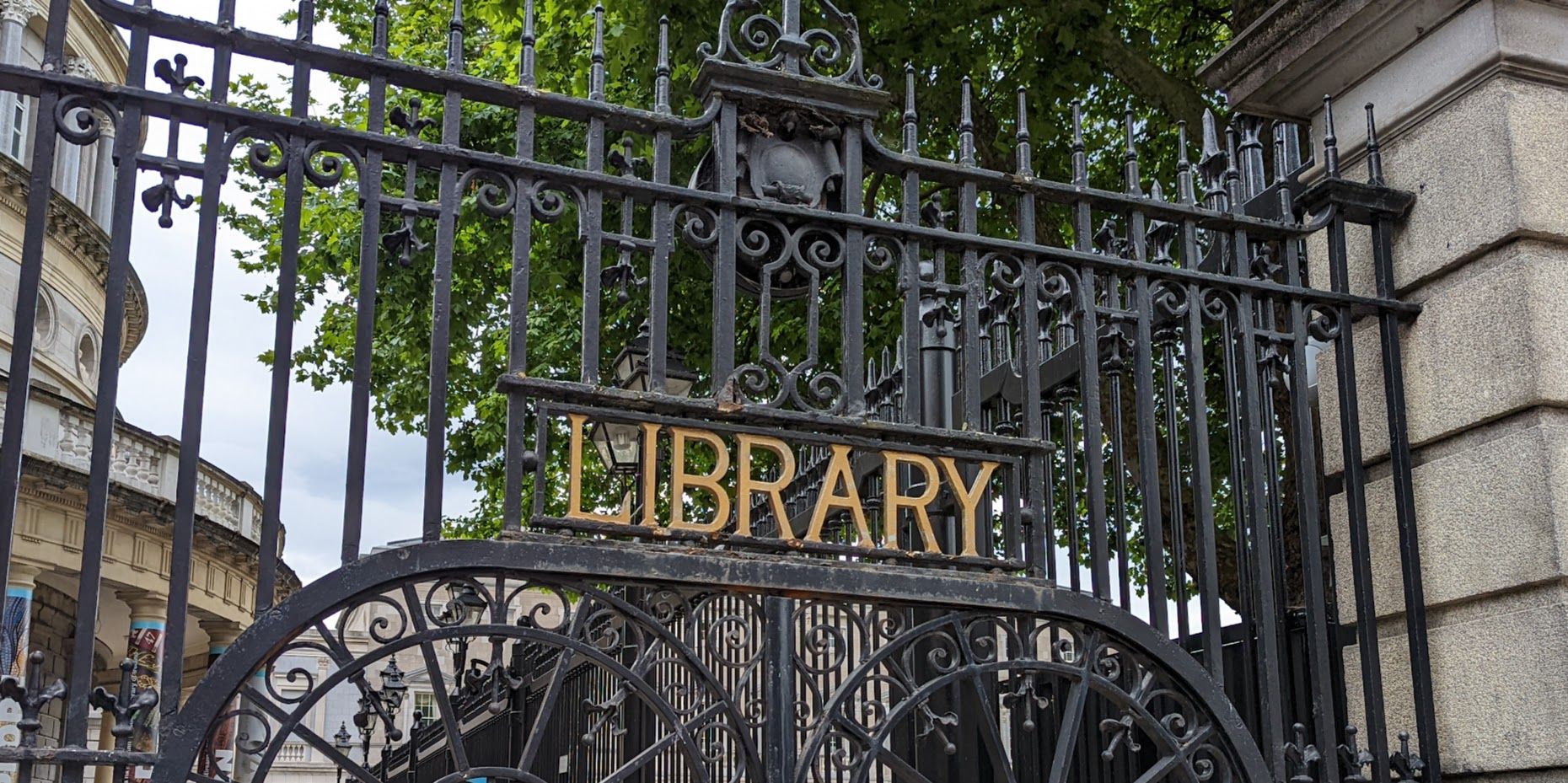
And in general, posts don't tend to be personal, but I enjoyed writing this one when asked about career and interests.

The last few are relatively recent, although older ones can stick in your mind. When we put together the book, there was a final chapter called Lorcan's Picks which included posts I liked but which did not fit into any of the professional categories.
One important use of a blog is as a sort of commonplace book and there are several where I collected some quotes which I regularly go back to. These sometimes have some personal resonance as with the remarks on emigration here.

I reference this one occasionally, as I like to quote Fintan O'Toole's suggestive writing on Dublin Public Libraries and the role of the library.
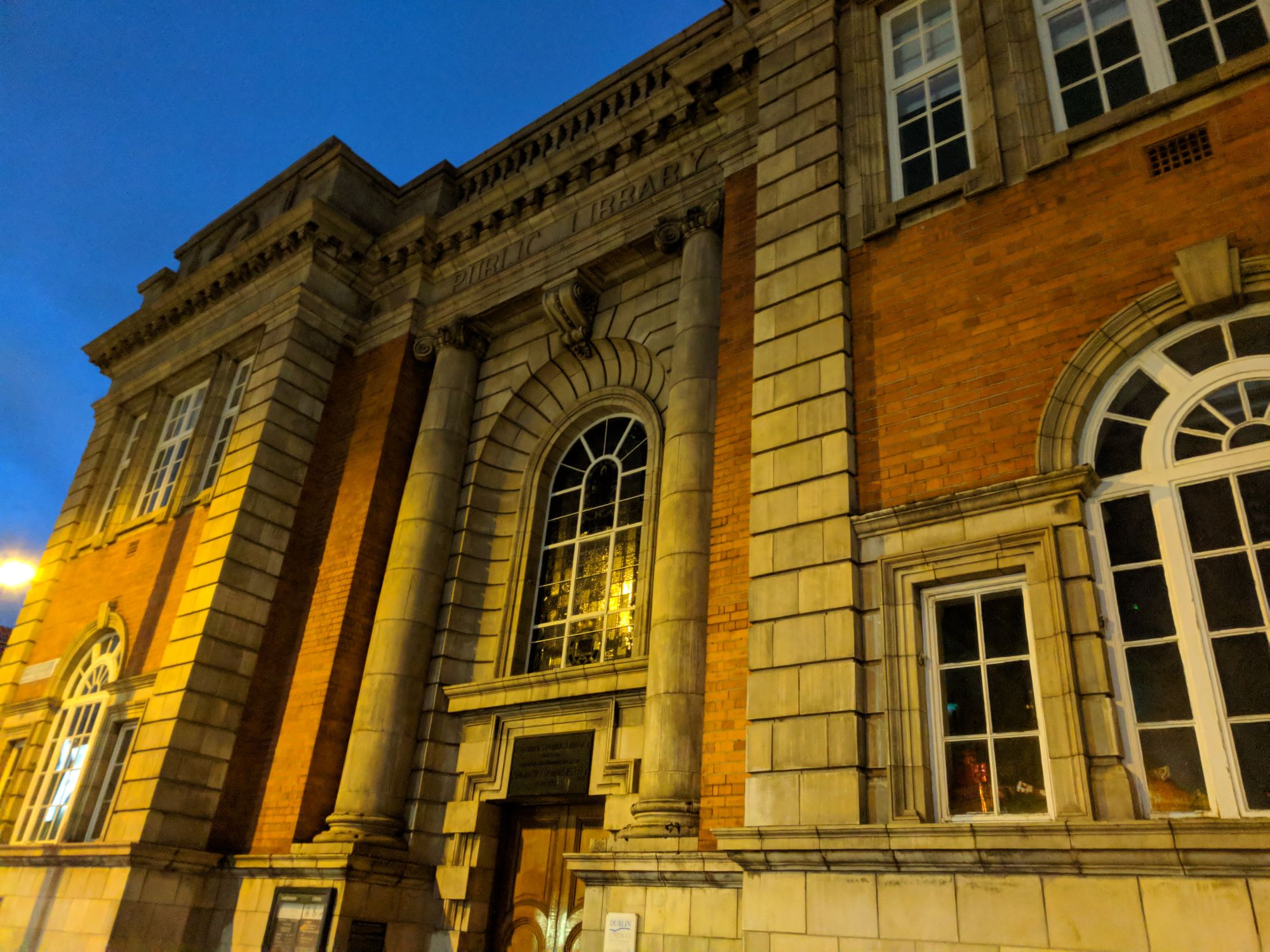
And I like the quotes on the generative nature of the library collected here:
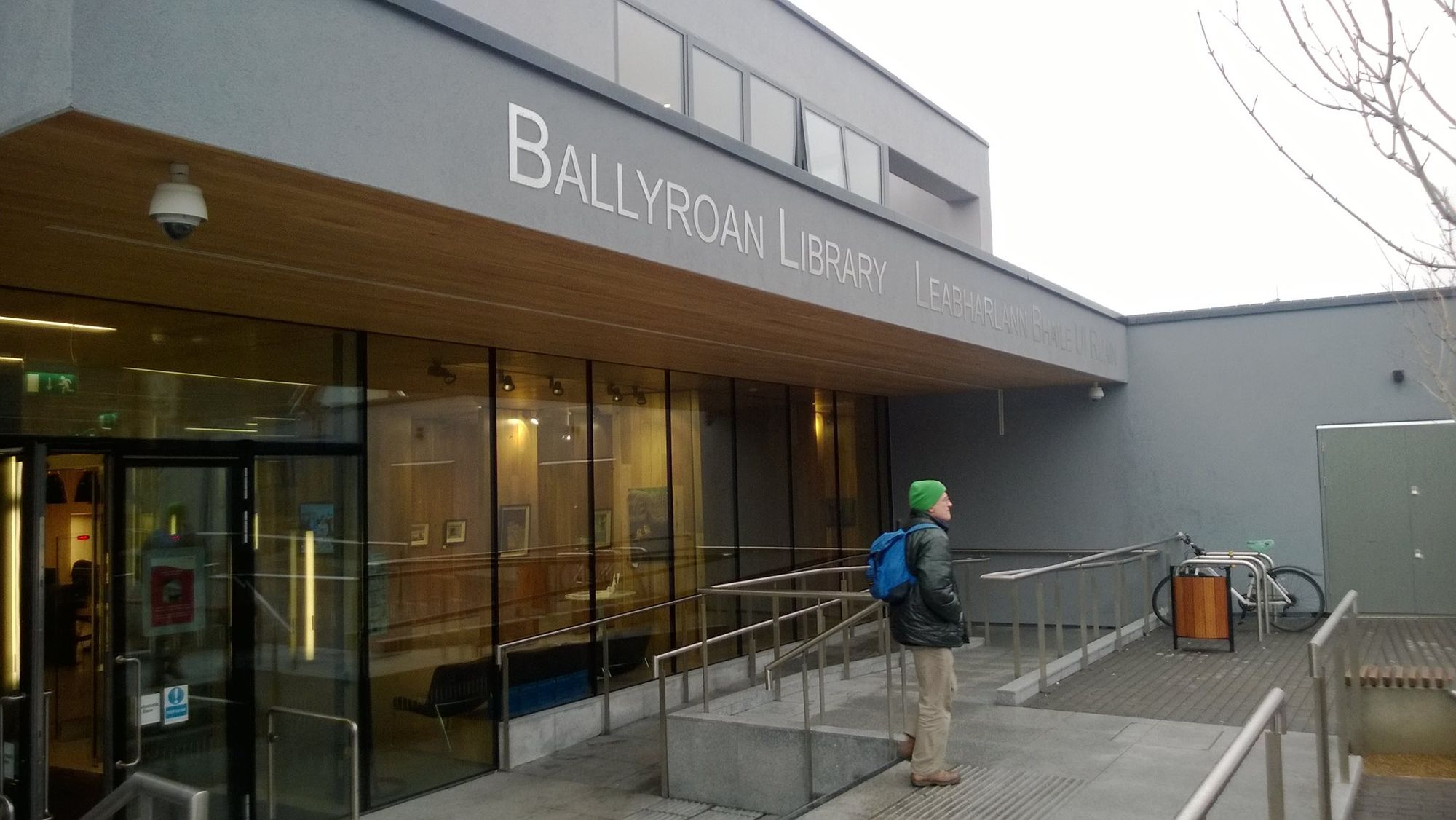
Publishing frequency declined over the years, and post length increased. During much of the time I blogged, there was a great sense of freedom - I would write things quickly, typically on one topic. However, as I noted a while ago:
Because I don’t blog all that often any more, I find that when I sit down to do an entry I have too much stuff to say. I end up writing a short article rather than a blog entry. Indeed, I have a couple of pieces that are lying around and have grown to several thousand words. One is on the evolving research support environment, and how the larger publishers are developing workflow services (“workflow is the new content”). One is on how scaling learning and innovation is an important part of the “soft power” of consortial activity. // Lorcandempsey.net
I did publish the posts mentioned above (but have promised a couple of yet-to-be-completed followups to the Workflow is the new content one). I have done more of late. And I indeed still have a little pile of entries on several topics which are just begun, or already too long, or discarded, or promised. It is a busy time as I prepare for teaching, but I hope to continue posting here for some time to come!
Feature image: As noted I took this in Epic the Irish Emigration Museum. See Wikipedia for the Wild Geese. I added a section to this Wikipedia entry to reference how the phrase Wild Geese is sometimes broadened metaphorically to reference Irish emigration generally. The original Wild Geese were those Irish soldiers who left to serve in European armies, after the defeat of the Irish Jacobin army at the Battle of the Boyne and the subsequent surrender in the Treaty of Limerick.
Note: Slightly expanded 10/13/2023.

